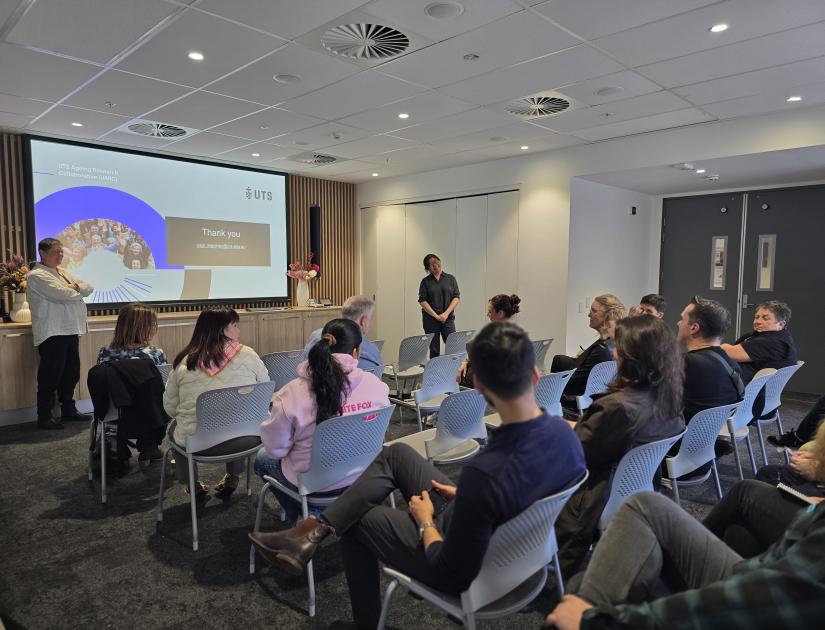In UTS Ageing Research Collaborative’s (UARC) August research seminar Dr Suyin Hor provided us with a wonderful opportunity to showcase UARC’s transdisciplinary and translational approach to research in aged care.
How video transforms understanding in aged care

Caption
Dr Suyin Hor speaking at the UARC seminar series
Dr Suyin Hor is a Senior Lecturer and the HDR Coordinator in the UTS School of Public Health. She is also a social scientist interested in how safe and high-quality care is accomplished, with a special interest in infection prevention and control.
Her presentation discussed how video can transform our understanding of health and aged care and introduced us to video-reflexive ethnography.
Suyin explained how video-reflexive ethnography prompts reflexive discussion with and between researchers and participants. Viewing footage provides a sense of distance for participants and prompts group reflexivity about otherwise taken-for-granted practices.
She shared how the approach also enables complexity to be embraced and respected by those participating in infection control and those researching it. Suyin explained that this is achieved because of the richness of video, the focus on everyday practices, and allowing frontline practitioners and patients to “have a conversation that would not normally happen”.
The Q&A component of Suyin’s talk was lively and informative. It became an opportunity for the scholars present from the various disciplines within UARC to have an open discussion on how we navigate through space or our built environment, as choreography, and making this movement visible when understanding the spread of infections.
The approach provides an opportunity to understand what is happening in a forum where the purpose is not to criticise but to foreground and respect care workers’ expertise in navigating this work.
It was noted that how we navigate through space also depends on how the space and built environment has been designed. The discussion truly leveraged the individual and collective skills and knowledge of the UARC scholars in attendance.
Suyin said, “The power of video-reflexive ethnography is that people watch themselves doing their usual work within their usual environment, in such a way that makes the familiar strange.”
“The approach provides an opportunity to understand what is happening in a forum where the purpose is not to criticise but to foreground and respect care workers’ expertise in navigating this work,” she said.
The challenges of using video-reflexive ethnography in aged care were discussed including:
- The workforce experiencing high turnover resulting in communication and training challenges
- The hybrid nature of residents’ homes, as spaces where clinical care also occurs
- How best to prioritise the rights of older people.
What’s next?
- Attend the next UARC seminar on 17 September, 1-2pm in RES Hub - Register now.
- Learn more about UARC.
- Connect with UARC research by contacting UARC at UARC_inquiries@uts.edu.au.